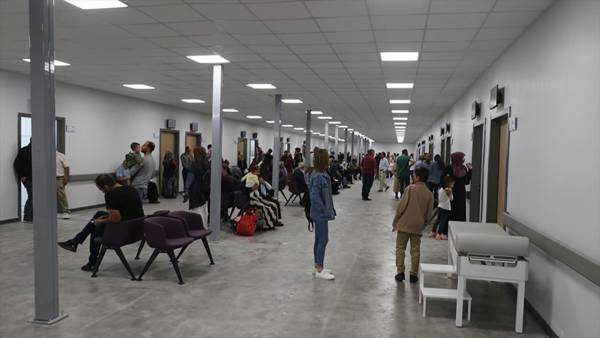The 2025 central government budget proposal, submitted by the Presidency to the Turkish Grand National Assembly (TBMM), amounts to 14 trillion 731 billion 14 million 332 thousand liras, representing a 33% increase over the 2024 budget in lira terms. However, as the Turkish Statistical Institute (TurkStat) reported in September 2024, the annual inflation rate stands at 63.5%. The gap between the annual inflation rate and the budget increase is over 30 percentage points. This discrepancy indicates that the real size of the 2025 budget has, in fact, been reduced by approximately 23% compared to 2024.
Furthermore, the projected revenue for the 2025 budget is 12 trillion 670 billion 431 million 309 thousand liras. This leaves a shortfall of 2 trillion 60 billion 583 million 23 thousand liras, or 14%, as submitted for parliamentary approval. Even in the planning stage, Turkey’s 2025 budget as prepared by the Presidency is not positioned to be a “balanced budget.”
According to the proposal, 99.9% of total budget revenues—excluding the shortfall—are projected to come from tax revenues. Of these tax revenues, only 30.5% are expected from income, profit, and property taxes, while 69.5% will come from indirect taxes such as value-added taxes, special consumption taxes, stamp duties, and fees.
Within the projected 2025 budget, corporate taxes are set to make up just 44% of income and profit taxes, one of the two primary components of income-based tax revenues. This is a decrease from the 52% planned for 2024, showing a drop of about eight percentage points or 14%. This alone signals that the AKP-MHP coalition will continue to favor corporate interests in 2025. In other words, while corporations may loosen their belts, workers, farmers, low-income individuals, and self-employed workers are expected to tighten theirs even further.
What the 2025 budget calls to mind
Eight years ago, following the attempted military coup on July 15, 2016, the "Presidential System of Government" began to take effect through decrees issued within 10 days of the event. The system was later voted on in a plebiscite on April 16, 2017, as part of a constitutional amendment, narrowly passing with 51% in favor against 49%. It formally came into effect following the general election on June 24, 2018.
Since then, the legal foundation for a parliamentary system with separation of powers has been dissolved. The Council of Ministers was abolished, and the President gained the authority to appoint ministers, members of the Constitutional Court, the Court of Cassation, the Council of State, and the Council of Judges and Prosecutors, as well as the head of the Central Bank and provincial governors. Almost all powers previously distributed among the legislative, executive, and judicial branches have been consolidated under the President, effectively sidelining both the parliament and political parties.
In 2019, the authority to execute the Central Government Budget Law, previously held by the Prime Minister, was officially transferred to the President. Starting that year, the Central Government Budget Law Proposal and its accompanying documents were prepared by the Presidency instead of the Prime Ministry and then submitted to the Speaker of the TBMM.
From proposal to law: What is the general budget?
Officially known as the "Central Government Budget Law," this budget is commonly referred to as the “general budget.” Initially submitted as a proposal, it follows the legislative process similar to other laws: it first becomes a draft bill and then a final law. Once the Central Government Budget Law Proposal is sent by the Presidency to the TBMM Speaker’s Office for inclusion in the agenda, it is forwarded as a draft bill to the Planning and Budget Committee for review by its members.
The Planning and Budget Committee allocates time for each ministry and public institution to present their budgets, after which debates are held. Each article of the draft is voted on separately, and any accepted amendments are recorded. After the proposal, including the meeting transcripts, is finalized and approved by the committee, it is forwarded to the TBMM Speaker’s Office.
In the TBMM General Assembly, the draft bill is reviewed and voted on according to a pre-determined schedule. Following an article-by-article vote, the entire bill undergoes a final review and vote. Upon approval, the draft becomes law and is published in the Official Gazette with the President’s signature, going into effect at the start of the new year. Thus, while the general budget is a law, its implementation is unique in that it is limited to a one-year period.
The budget as an indicator of class struggle
The content of the Central Government Budget Law—the general budget—differs from other laws as it reflects how societal resources will be generated, allocated, and distributed. In capitalist societies, it serves as an indicator of class struggle, shedding light on whether the budget’s revenue is primarily derived from wealth, profit, rent, and interest or from the taxes directly and indirectly levied on those who must work to survive, such as workers, farmers, small business owners, and the unemployed.
Through the budget's income sources—whether taxes on income, wages, and earnings or the indirect taxes applied to spending after wages have already been taxed—the status of class struggle can be assessed. Additionally, the amount allocated to public services in the general budget highlights the state of resource distribution and class struggle.
Detailed budget breakdowns for each ministry and public institution have yet to be submitted to the TBMM. Once released, these documents will provide a clearer picture of Turkey’s ongoing distribution challenges, especially when reviewed just prior to budget presentations. (OH/VK)









